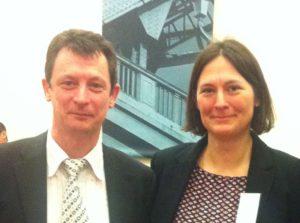
Rare diseases, as their name suggests may be uncommon, but consider this, a ‘rare disease’ is defined as one that affects less than 1 in 2,000 of the general population. But there are between 5,000 and 8,000 known rare diseases, many of which have a genetic origin, therefore collectively, rare diseases will affect 1 in 17 (7%) of the population at some point in their life. This equates to over 25 million people in the 28 member states of the European Union who are affected with a rare disease! And also consider that rare diseases are often difficult to diagnose and the average person with a rare disease waits 4 years for a diagnosis.
Genetic skeletal diseases (GSDs) are a prime example of rare (or orphan) diseases. They are an extremely diverse and complex group of phenotypes that primarily affect the development and homeostasis of the osseous skeleton. There are more than 450 unique and well-characterised phenotypes that range in severity from relatively mild to severe and lethal forms and although individually rare, as a group of related genetic skeletal diseases, GSDs have an overall prevalence of at least 1 per 4,000 children. GSDs are difficult human diseases to diagnose and treat and there are currently very few therapeutic interventions to halt or modify disease progression.
28 February 2017 is the 10th International Rare Disease Day (#RDD2017) and at this time hundreds of patient organisations, researchers and clinicians, from many countries and regions all over the world, will hold awareness-raising activities. The theme of RDD2017 is that of RESEARCH with the slogan ‘With research, possibilities are limitless’.
As part of RDD2017 researchers within the Institute of Genetic Medicine (IGM) in the Faculty of Medical Sciences at Newcastle University will be undertaking a week of activities to raise awareness of rare diseases and promoted the research activities of IGM (@IGMengageNCL). For the past 4-years Dr Katarzyna Pirog, a lecturer in musculoskeletal genetics has been delivering an exciting programme of activities to rare disease stakeholders in the Northeast of England through “Genetics Matters”. This year sees an even bigger event to be held at the Discovery Museum in Newcastle-upon-Tyne, where discussions on the 100K Genome Project and the development of personalized medicine will feature prominently.
It is incumbent upon all of us to raise the awareness of rare diseases because translational research changes the lives of the millions of people and their families living with a rare disease across the world.
